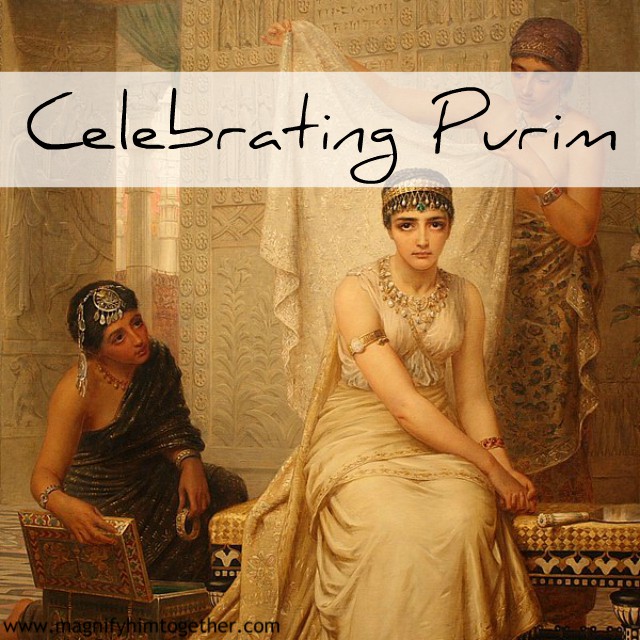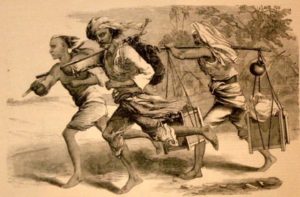Purim is the Jewish feast written of in the book of Esther. Although it is not one of the Feasts initiated by God in the Law of Moses, it does have deep scriptural significance. The name Purim is derived from the Hebrew word “pur” which means “lots” and is a reference to how Haman chose the day he would annihilate the Jewish people. By the will of God, his plan was overthrown and God’s people were victorious over their enemies. To celebrate and remember this joyous day (that would have been a day of slaughter and destruction) they inaugurated the feast of Purim.
Here are a few ideas of activities you could do at home, in your ecclesia or at Bible school to make the lessons from the book of Esther living and powerful.
- Feasting: Try ancient food of Persia (modern day Iran) – goat, lamb, pistachios, apricots, artichokes, eggplants, lemons, lime, oranges, pistachios, spinach, saffron and tarragon to name a few!
- Feasting & Sending Portions: Make Hamantaschen (Haman themed cookies Jews make commonly at Purim) and share them with others.

- Remembering: Read the book of Esther. Write the name of Haman on a flip-flop, shoe or even a print out of a shoe. Every time Haman’s name is mentioned, have the kids stomp their feet. The Jews do this when they celebrate Purim to “blot out the memory” of Haman, but there is also a really neat allusion to crushing the head of the serpent.
Haman occurs 45 times in the King James Version, but 54 times in the original Hebrew. This is a very easy way to keep children engaged through the reading of the whole book of Esther.
“Therefore it shall be, when the LORD thy God hath given thee rest from all thine enemies round about, in the land which the LORD thy God giveth thee for an inheritance to possess it, that thou shalt blot out the remembrance of Amalek from under heaven; thou shalt not forget it.” Deuteronomy 25:19
- Remembering: Pull out the costumes and have the family act out the story (this is always a favourite in our house!)
- Rejoicing: Play “Hang Haman” (Hang hangman game)
![McGeddon [CC0]](https://www.magnifyhimtogether.com/wp-content/uploads/2019/03/HangmanGame-225x300.jpg)
- Gifts to the poor: Create a card or craft and mail it to someone in need.
The Ancient Persians are credited for having the very first postal system. This is incredible when you consider how many times messages are sent throughout the empire in the book of Esther.
If you have more ideas, we’d love to hear from you! Please contact us here.
For more information about Providence in the book of Esther, visit this previous post.






